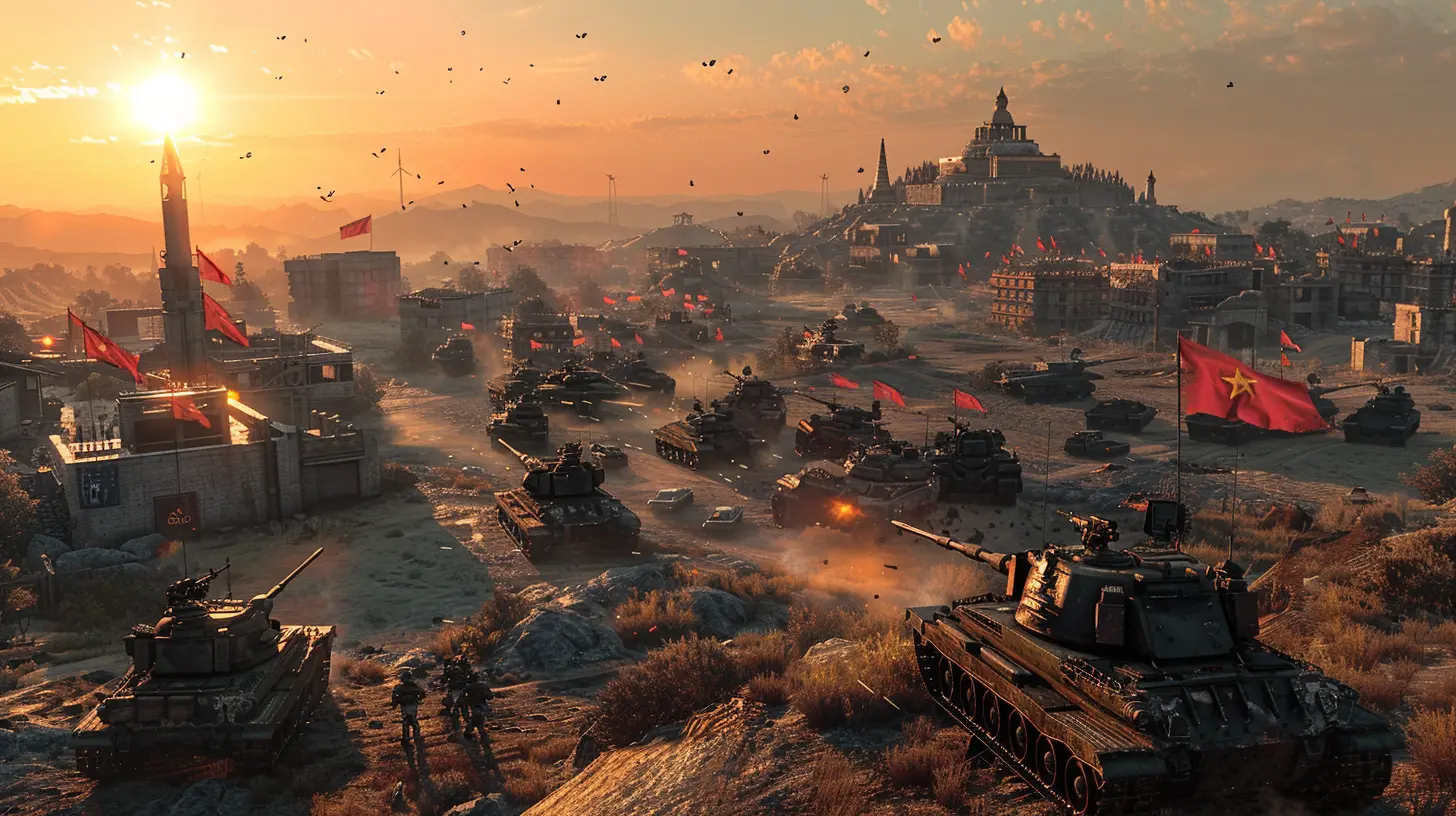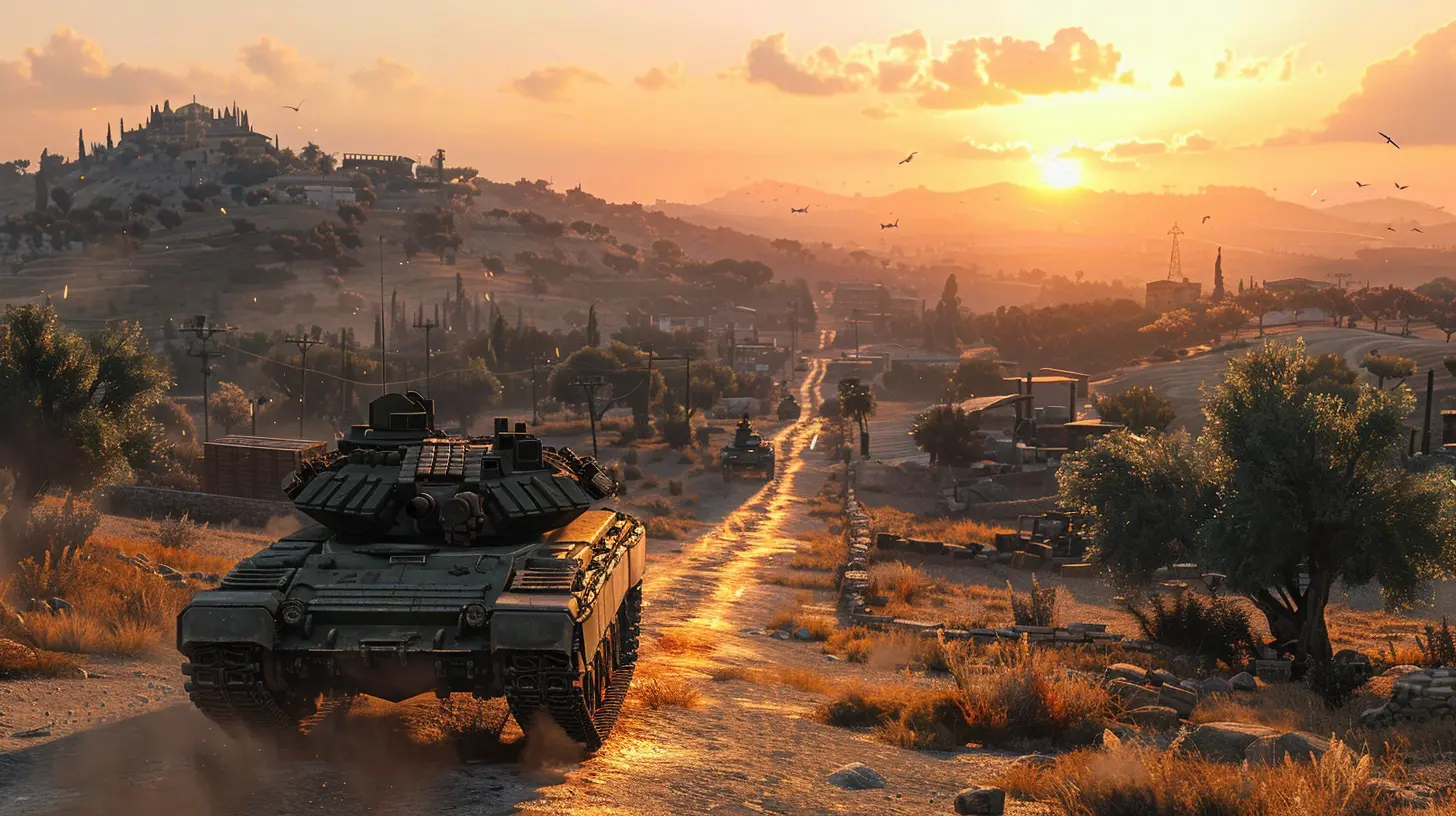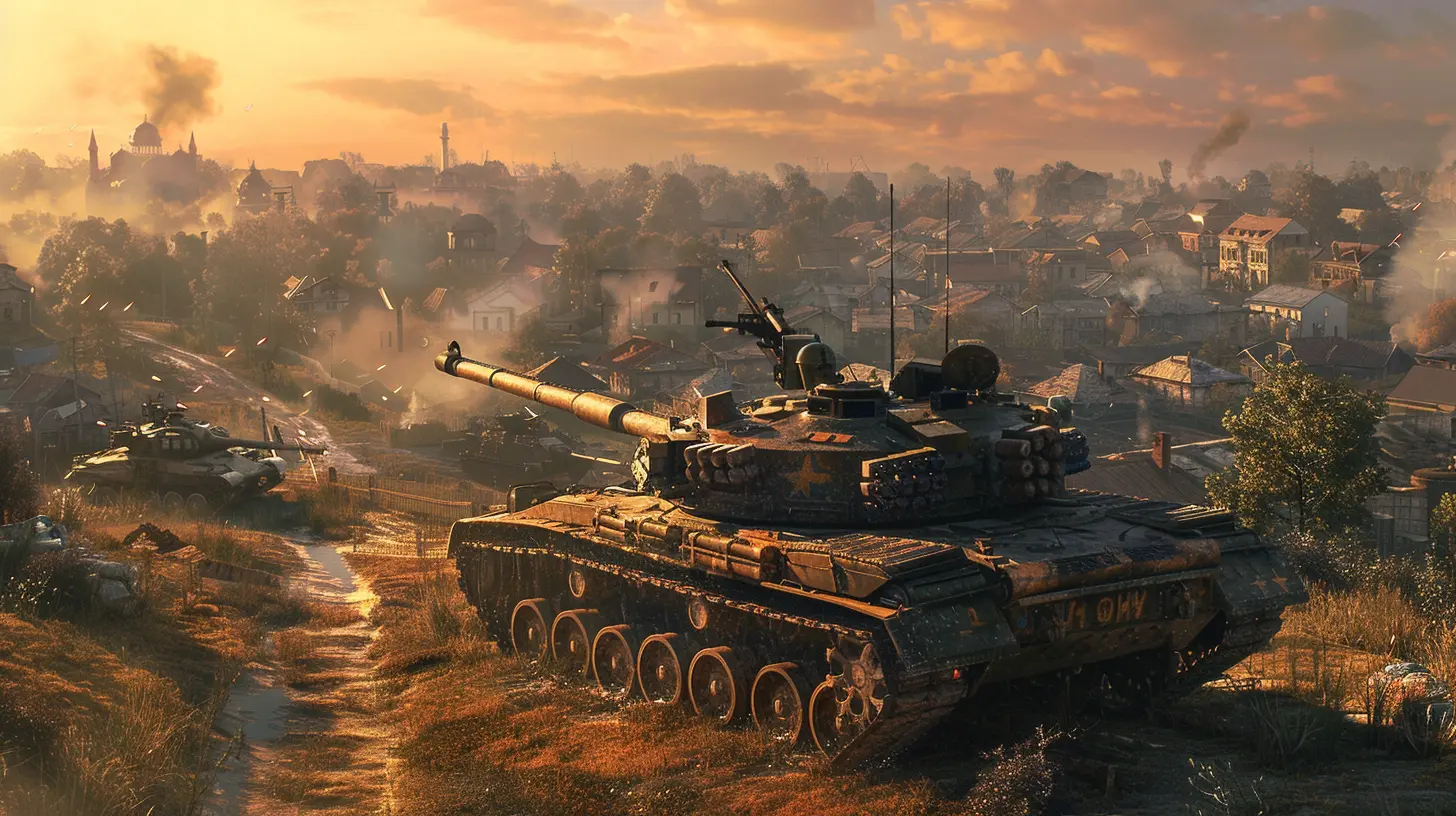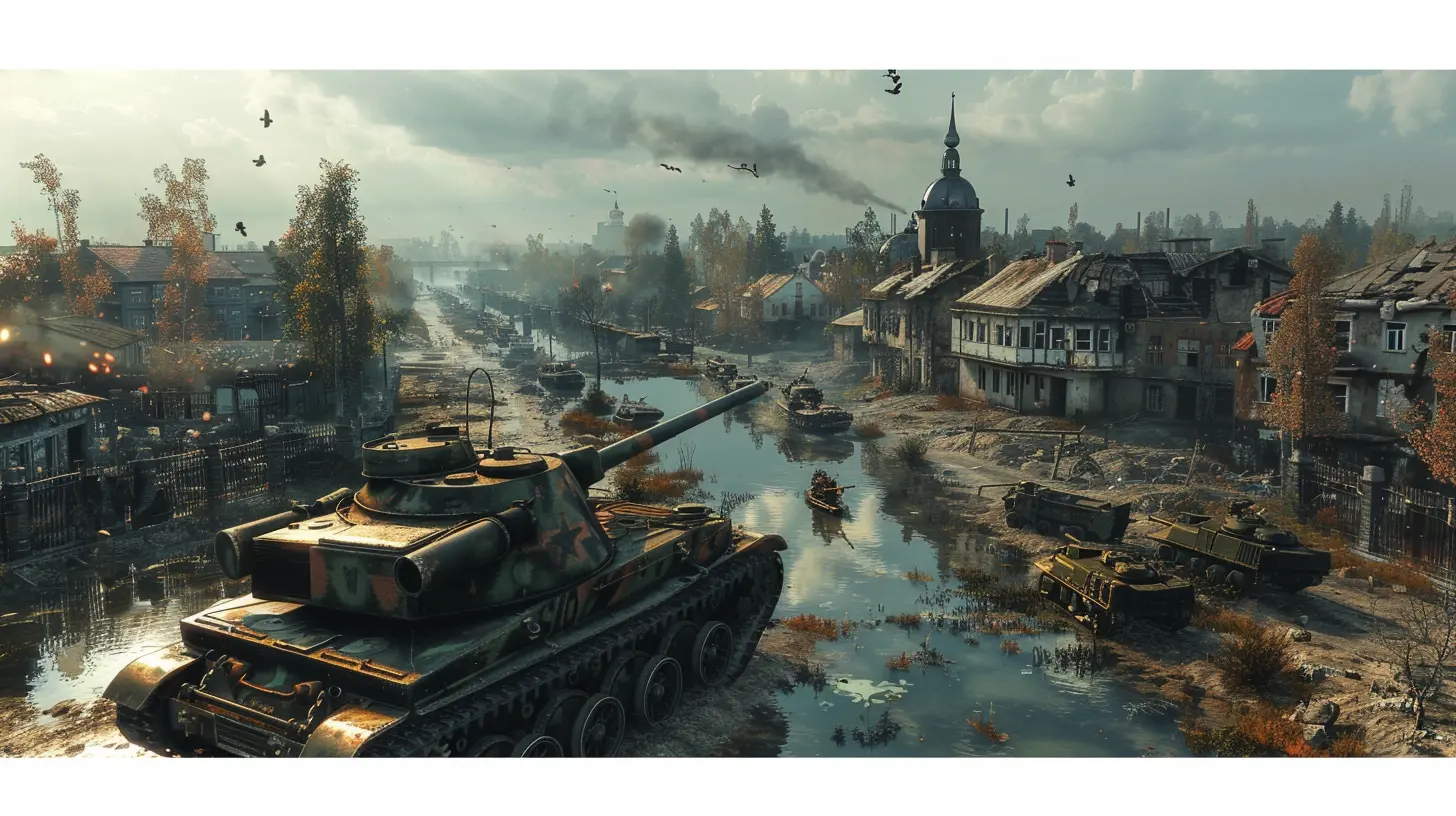The Importance of Logistics in Military Strategy Games
15 November 2025
When we talk about military strategy games, what's the first thing that pops into your head? Massive tank battles? Aerial dogfights? Heroic last stands? Sure, all of that action-packed stuff is super important—but there’s a behind-the-scenes MVP that can make or break your victory: logistics.
Yeah, I know what you're thinking. “Logistics? That sounds boring.” But hear me out. In real-world military operations, logistics is the backbone of any successful campaign—and the same goes for strategy games. Without proper logistics, your glorious armies won't get very far. They’ll run out of fuel, food, ammo… and let’s face it, morale too.
So, grab your virtual clipboard and some digital supply crates, because we’re diving deep into why logistics is the unsung hero of military strategy games.
What Is Logistics in Military Strategy Games?
Let’s break it down. When we talk about “logistics” in a military context, we’re referring to the planning and execution of moving and maintaining armed forces. It covers everything from transporting troops and supplies, to keeping equipment serviced, to making sure your units don’t starve mid-campaign. In games, this translates into mechanics like:- Supply chains
- Resource management
- Unit fatigue and morale
- Transportation systems
- Fuel and ammo considerations
Basically, logistics is what keeps your well-oiled war machine... well, oiled. Think of it as the difference between a sharp sword and one that breaks mid-swing.
Why Logistics Is Crucial in Strategy Games
1. It Adds Realism
Let’s be real—real wars aren’t won by whoever has the most tanks. They’re won by whoever can keep their tanks stocked, fueled, and running. Logistics adds that extra layer of realism that makes a game feel authentic. Games like Hearts of Iron IV, Total War, and Combat Mission get this right—forcing you to think like a commander, not just a button-masher.When your units start suffering attrition because they’re out of supplies, that’s not a bug—it’s a feature. It makes every decision matter. Where you station your supply lines, how fast you advance, whether it's worth stretching your front line just a bit more—all of it feeds into the bigger picture.
2. It Forces You to Think Strategically
Let’s say you’re deep into an enemy’s territory. You’re winning battles left and right, but suddenly your troops start slowing down. They’re hungry. Their ammo is low. Vehicles are breaking down. Why? Because you pushed too fast without securing your supply lines.Now, instead of crushing your enemies, you’re stuck trying to pull back and regroup. That’s the power of logistics.
Good strategy games punish recklessness. Logistics mechanics force you to balance aggression with planning. You're not just thinking about the next fight—you’re thinking five, ten moves ahead.
3. It Prevents "Zerg Rush" Tactics
You know the type—players who just build the biggest army possible and throw it headfirst at the enemy hoping sheer numbers will win the day. While that might work in some simpler games, logistics-oriented titles put an end to that nonsense real quick.If you don’t have the resources to support your mega-army, it’s going to collapse under its own weight. Troops will starve, vehicles will stall, and morale will plummet. Suddenly that "unstoppable force" becomes a logistical nightmare.
This levels the playing field. Even if you're not the strongest on paper, smart logistical play can give you the upper hand. That’s where the real satisfaction kicks in.
Components of Logistics in Strategy Games
Let’s unpack the different pieces that make up the logistics puzzle in military games. They each play a vital role, and ignoring even one could spell disaster (or at least a rage-quit).A. Supply Lines
Supply lines are the veins of your military body. They carry everything your army needs to live and fight. In games like Hearts of Iron IV, if your supply lines get cut, your units are toast. You can have the best army in the world, but if they’re encircled and out of supply? Game over.Protecting and managing supply lines becomes a mini-game in itself. Do you build new roads? Use air supply? Secure railways? It’s all about connectivity.
B. Resource Management
Everything costs something. Fuel, food, ammunition, manpower—they're all limited. You need to decide what to produce, where to send it, and how much to stockpile.This adds another layer of decision-making. Maybe you can’t afford to send your elite tanks to the front because you’re low on fuel. Or maybe you delay an offensive because winter is coming and your supply capacity is lower in bad weather. It's not just about fighting; it’s about sustainability.
C. Transportation
You can’t just teleport your stuff across the map (well, unless you’re playing some sci-fi RTS). Roads, convoys, ships, trains, and air transport all factor into how and when your supplies reach the front lines. And guess what? These routes can be ambushed, blocked, or destroyed.This dynamic encourages players to plan alternate routes and prioritize critical infrastructure. It’s like juggling—and the stakes are pretty high.
D. Maintenance and Repairs
Ever had your vehicles break down at the worst possible time? That’s logistics failing you. In games that model wear and tear, regular maintenance becomes essential. It makes you allocate resources not just for attack, but for upkeep.It’s like owning a sports car. Looks cool, performs great, but if you don't take care of it, it's just a fancy pile of metal in your garage.
Games That Nail Military Logistics
A few strategy titles really stand out when it comes to putting logistics front and center. Here are some gems you might wanna check out:1. Hearts of Iron IV
This grand strategy game by Paradox lets you control a nation during WWII, and logistics is one of the core mechanics. Supply hubs, convoys, fuel consumption—it’s all there. A brilliant offensive can come to a crashing halt if you can’t keep your troops supplied.2. Total War Series
While not as nitty-gritty, the Total War games include limited supplies, unit attrition, and resource-based campaigning. Especially in titles like Total War: Attila, where food shortages and supply lines play a major role, you’ll feel the weight of every logistical choice.3. Company of Heroes 2
This one's more on the tactical end, but the supply mechanics are still key. Capturing and controlling fuel and munitions points determines what units you can build. Lose them, and you’re stuck fighting with whatever scraps you have left.4. Wargame: Red Dragon
This real-time tactics game adds another layer by giving each unit a limited amount of fuel and ammo. There's no base-building—just supply trucks and depots. You learn real quick that resupply is everything.Tips to Master Logistics in Strategy Games
Want to improve your logistics game? Here are a few pointers:Don’t Overextend
It’s tempting to rush the enemy, but if your army outruns its supplies, you’ll start losing without fighting. Always secure your supply lines before a big advance.Build Redundancies
If one supply line gets cut, have backups. Use alternate routes, mobile supply depots, or even air drops if needed.Prioritize Infrastructure
Invest early in roads, railways, and ports. Faster supply delivery means more flexible strategy.Monitor Supply Usage
Keep an eye on what units are consuming. Some units eat through fuel or ammo faster than others. Budget accordingly.Balance Your Army
Don’t just spam tanks or artillery. Have a balanced force that doesn’t drain a single resource too quickly. Infantry might move slower, but they’re often easier on the supply chain.How Logistics Makes You a Better Player
Here’s the real kicker—mastering logistics doesn't just help you in-game. It trains your brain to think strategically, manage resources, and plan ahead. Those are skills that’ll help you in other games—and honestly, even in real life.You start seeing patterns. You start planning better. You become a commander, not just a player. And that, my friend, is where the real fun begins.
Final Thoughts
Look, logistics might not have the loud explosions or dramatic battle scenes. It might not be sexy. But it’s the glue that holds your entire strategy together. Ignore it, and you’ll find your empire crumbling—not with a bang, but with a whimper from a hungry, fuel-starved squad.So next time you fire up your favorite military strategy game, don’t just think about the next battle. Think about the path your supplies will take. Think about how you’ll keep your army moving when the snow falls and the bullets run dry.
Because in the world of strategy games, logistics isn't just important—it’s everything.
all images in this post were generated using AI tools
Category:
War GamesAuthor:

Pascal Jennings
Discussion
rate this article
1 comments
Oriel Holland
Logistics often shapes victory or defeat in military strategy games, highlighting the necessity of resource management and strategic planning in gameplay.
November 23, 2025 at 5:03 AM


